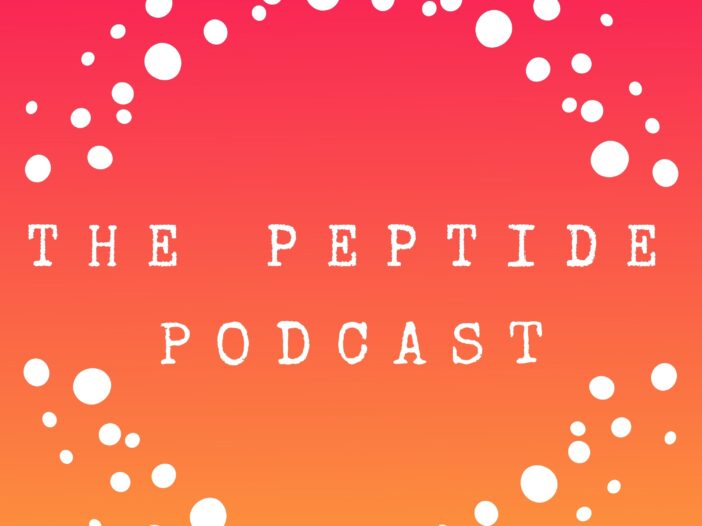
Several weeks ago, we discussed the semaglutide shortage and alternatives for weight loss.
Since then, we have had questions about berberine and if it’s considered “nature’s Ozempic or Wegovy.” We’ve also had questions regarding its safety.
But before we dive into what berberine is, how it works, and if it’s the same as semaglutide, I want to review the difference between Ozempic and Wegovy.
Both Wegovy and Ozempic have the same active ingredient: semaglutide.
Wegovy is an FDA-approved, once-weekly injectable weight management medication that’s been studied in people who do and do not have type 2 diabetes. And while it’s not approved to treat these conditions, adults taking Wegovy noticed improvements in blood pressure, cholesterol, and blood sugar.
Ozempic is approved to treat type 2 diabetes. In fact, during clinical trials, people taking Ozempic lowered their average blood glucose (A1C) by over 1%. And, if you have heart disease, it may reduce your risk of having a heart attack or stroke. Ozempic isn’t approved for weight loss, but since its active ingredient is semaglutide, it can cause weight loss as a side effect. This is why Ozempic is sometimes prescribed off-label for people with and without diabetes to help them lose weight.
Because some people are finding it difficult to get name-brand Wegvoy for weight loss due to a global drug shortage or, in some cases, prescription coverage challenges, they’re turning to alternative options like berberine.
What is berberine?
Berberine is a bitter-tasting, yellow-colored chemical found in certain plants like barberry, goldenseal, tree turmeric, and Oregon grape. It works by activating an enzyme called AMP-activated protein kinase (AMPK) which helps regulate metabolism (how your cells break down and use energy). Because of this, it may help with weight loss, but more studies are needed.
It also lowers blood sugar levels by decreasing sugar production in your liver. When your blood sugar levels are low, your insulin levels are low. Because of this, it may help people with diabetes. And when your insulin levels are low, your body can now burn (oxidize) more fat.
And some preclinical studies have shown that it inhibits a protein called PCSK9. By blocking PCSK9, it causes more bad cholesterol (LDL) to be removed from your blood. And by lowering LDL cholesterol, you may have a lower risk of heart attack, stroke, and more.
Berberine is commercially available as capsules, tablets, liquid solutions, and powders. And it’s sometimes used in eye drops and gels.
How does berberine compare to semaglutide for weight loss?
But compared to semaglutide, berberine works differently, and they have yet to be directly compared in any head-to-head studies. In fact, based on a literature review alone, semaglutide induces higher levels of weight loss than berberine.
One 2020 systematic review and meta-analysis of 12 clinical control trials found that berberine supplementation lowered body weight on average by about 2 kilograms or 4.5 pounds over the duration of the studies. In comparison, during a 68-week trial with about 2,000 people, adults taking semaglutide (Wegovy) for weight loss lost about 35 pounds of their starting body weight on average.
What are the side effects?
You’re more likely to experience side effects if you’re taking high doses or if you’re taking berberine for a long period of time. Because of this, your healthcare provider will likely suggest taking the lowest dose for the shortest possible time. Berberine has been safely used in doses of up to 1.5 grams daily for up to 6 months.
When taken by mouth, berberine can cause similar stomach-related side effects like semaglutide. These include side effects like diarrhea, constipation, upset stomach, and gas.
When applied to the skin, berberine is considered safe for most adults. But skin reactions (rash, redness) are possible with any topical product.
Who shouldn’t take berberine?
In some cases, berberine can cause more serious side effects. This is especially true in infants and children who have high bilirubin levels (jaundice- yellowish discoloration of the skin). Berberine may keep the liver from removing bilirubin, a chemical made when old red blood cells break down. This can cause brain problems.
It’s also not safe to take berberine while pregnant or breastfeeding. Berberine can cross the placenta and enter a mother’s breast milk and may harm the unborn baby.
Are there medication interactions with berberine?
There are some problematic drug interactions to worry about with berberine. For example, if you’re taking a blood thinner like warfarin, berberine may cause your blood to become too thin. You should also avoid taking berberine with other diabetes medications like metformin because your blood sugar levels may become too low. Examples of other medications that can interact with berberine include anti-rejection medications like cyclosporine, blood pressure medications like losartan, cough suppressants like Robitussin DM, and benzodiazepines like lorazepam, to name a few.
While berberine shows some promise for several health benefits like cholesterol and blood sugar control, its long-term effect on weight loss has yet to be discovered.
So before you buy this supplement, make sure to see if it’s safe for you to take. And remember that just because you see something on the internet doesn’t mean there are studies to support it.
Thanks again for listening to The Peptide Podcast, we love having you as part of our community. You can find out more information about semaglutide on our previous podcasts.
If you love this podcast, please share it with your friends and family on social media, and have a happy, healthy week!
Pro Tips
We’re huge advocates of using daily collagen peptide supplements in your routine to help with skin, nail, bone, and joint health. But what do you know about peptides for health and wellness?
Giving yourself a peptide injection can be scary or confusing. But we’ve got you covered. Check out 6 tips to make peptide injections easier.
Leave a Reply